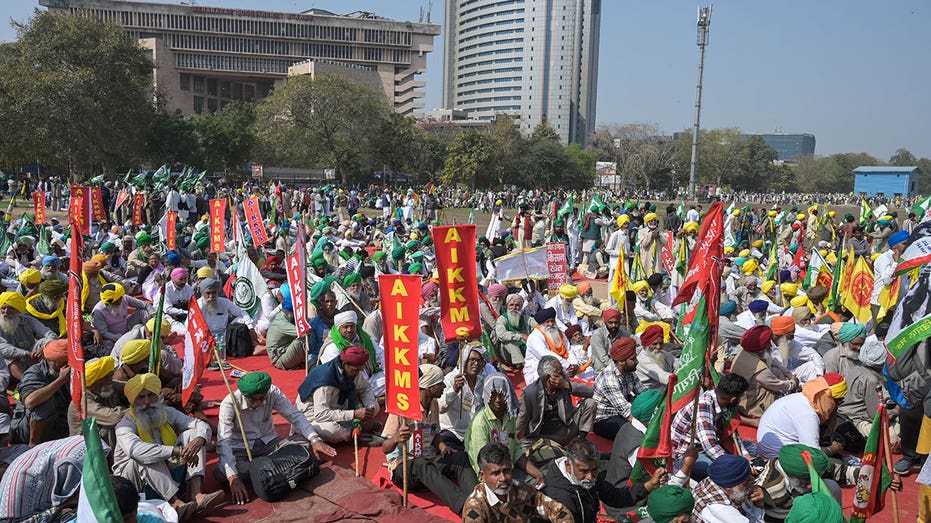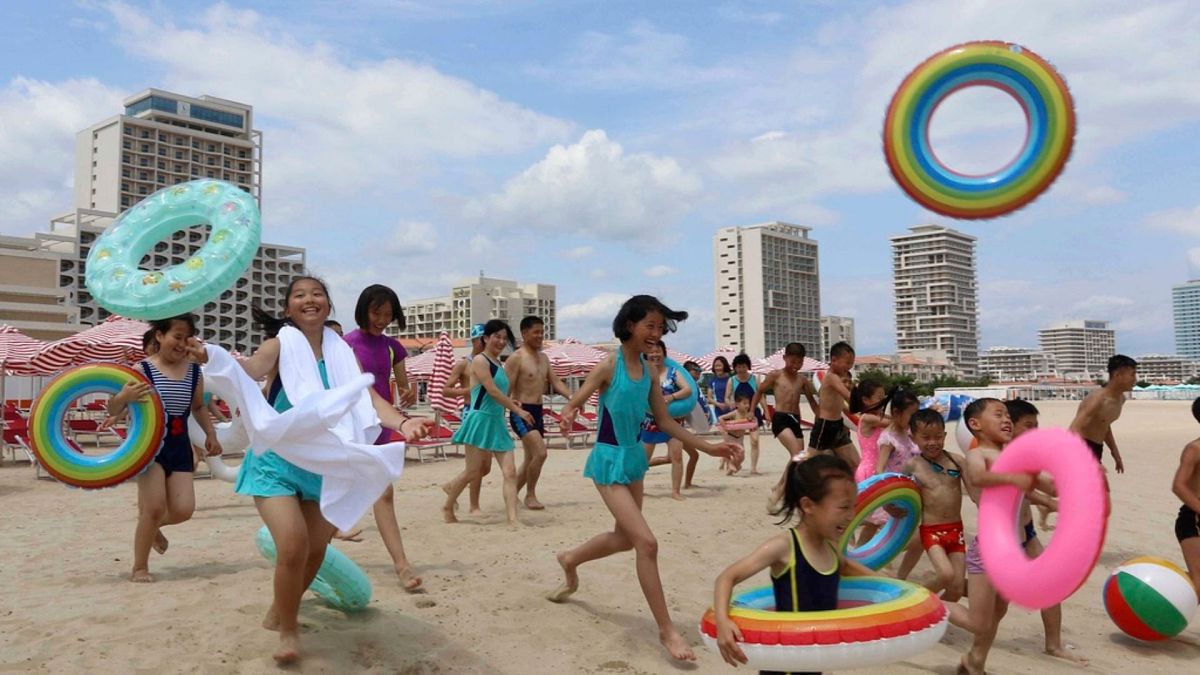Protesting farmers flood India's capital demanding law to guarantee minimum crop prices
Thousands of farmers protested on Thursday in India's capital to press their demand for a new law that would guarantee minimum crop prices, officials say.

Thousands of farmers protested in India's capital on Thursday to press their demand for a new law that would guarantee minimum crop prices, after weeks of being blocked from entering the city.
They rode crowded buses and trains instead of their tractors to New Delhi after authorities barricaded highways into the capital with cement blocks and barbed wire. Police also banned use of farm vehicles as a condition for granting permission for the rally in the city. Participants were also barred from carrying sticks or swords to avoid clashes with police.
The protesters held placards demanding free electricity for farming. They contended that without minimum price guarantees for their crops, they would be at the mercy of the markets and that would spell disaster, especially for the more than two-thirds of them who own less than 2 1/2 acres of land.
11 DEAD, 4 INJURED IN INDIA'S CAPITAL AFTER MASSIVE FIRE AT PAINT FACTORY
The rally, organized by the United Farmers Front, was held at Ramlila Ground, which is used for religious festivals, major political meetings and entertainment events.
Police also set a condition for the rally that no more than 5,000 people would participate, the Press Trust of India news agency said. The rally was scheduled to end later Thursday.
Chitwant Singh, a protester, said farmers didn't earn enough to cover their costs. "The traders and middlemen take away all our profits," he said.
The protests come at a crucial time for India, which has a national election in April-May in which Prime Minister Narendra Modi’s governing party is widely expected to secure a third successive term. Farmers are a particularly influential voting bloc because of their numbers. More than 60% of India's 1.4 billion people depend on farming for their livelihoods.
The farmers are also pressing the government to keep its promises to waive loans and withdraw legal cases brought against them during earlier protests in 2021. Several rounds of talks have failed to break the deadlock.
Separately, thousands of farmers have been protesting in Shambhu, a town about 200 kilometers (120 miles) from the capital, since Feb. 13.
Authorities have barricaded highways leading to New Delhi with cement blocks, metal containers, barbed wire and iron spikes to prevent the farmers from entering the capital. The farmers have brought bulldozers and excavators to try and push through.
On Feb. 21, clashes between farmers and police left one protester dead as the farmers tried to resume their march to the capital after talks with the government failed to end an impasse over their demands for guaranteed crop prices.
Police said 12 officers were injured after protesters attacked them with sticks and pelted them with stones.
The farmers paused their protest and have camped near Shambhu, close to the border between Punjab and Haryana states, as their unions engaged in discussions with government ministers.
They rejected a proposal offering them five-year contracts with guaranteed prices for certain crops including maize, grain, legumes and cotton.
INDIA'S GOVERNMENT TO ENACT CONTROVERSIAL CITIZENSHIP LAW EXCLUDING MUSLIMS AHEAD OF ELECTION
Two years ago, tens of thousands of farmers camped out on the outskirts of New Delhi for months, forcing Modi to repeal new agriculture laws in a major reversal for his government.
Jagjit Singh Dallewal, one of the farmers leading Thursday's protest, said they did not want any violence and condemned the government for the massive security measures.
Protest organizers say the farmers are seeking a law that would guarantee minimum prices for 23 crops to help stabilize their incomes.
The government protects agricultural producers against sharp falls in farm prices by setting a minimum purchase price for certain essential crops, a system that was introduced in the 1960s to help shore up food reserves and prevent shortages. The system can apply to up to 23 crops, but the government usually offers the minimum price only for rice and wheat.
What's Your Reaction?
















